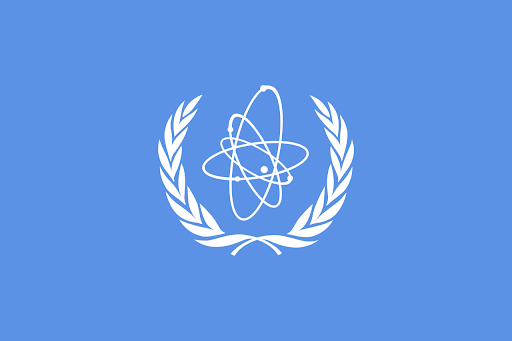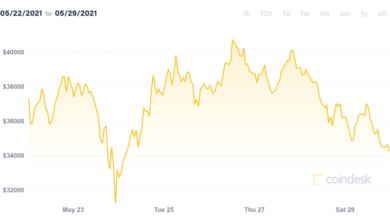THE IMBALANCE OF NUCLEAR POWER INSTIGATES SURVIVAL MODE

The Non-proliferation treaty (NPT), having 187 signatory countries, was created to prevent new nuclear states from emerging. Its objective is to promote cooperation in the peaceful use of nuclear energy and, to work towards nuclear disarmament. The Non-Proliferation Treaty has become the legal anchor for the global nuclear regime. Despite that, 51 years later, the world still lives under the terror of nuclear power.

When NPT came into force in 1970, five Nations were declared nuclear states- the United States, The Soviet Union (now Russia), China, Britain, and France. Under this treaty, neither can these States transfer nuclear weapons nor can they help non-nuclear States obtain them. Non-Nuclear signatories accept not to develop or obtain such weapons. In return, they are granted an undertaking that they will be assisted to develop nuclear energy for peaceful objectives. This discourse splits the world into countries that can be trusted with atomic weapons and those that cannot.
The idea of nuclear disarmament is to reduce or eliminate the use of nuclear weapons. According to the NPT, nuclear-weapon States provide safety and nuclear technology to the non-nuclear states for peaceful and security purposes. This can be a positive action as non-nuclear States are less likely to be aggressive towards a nuclear-armed State and promote harmony within International relations. However, a downside to one State having nuclear weapons is that other States feel threatened and they may actively seek nuclear weapons themselves.
Other countries get tempted to acquire nuclear weaponry for purposes of protection, or status, in a world of nuclear-armed camps. The fear of an accidental or unauthorized launch of nuclear weapons, or an escalating dynamic arising out of political crisis or regional conflict, could lead to full-scale nuclear war. Therefore, the States try to arm themselves and reduce their dependency on other Nations for defense and protect themselves from nuclear blackmail; this is known as the survival theory. The lack of confidence in the nuclear-armed States for guardianship of their land contributes majorly to the need for survival theory.
The Cold War witnessed an acceleration of States that sought to obtain nuclear weapons in the interest of their survival. Nine countries known or believed to hold nuclear weapons are China, France, India, Israel, North Korea, Pakistan, Russia, the United Kingdom, and the United States are termed nuclear weapons states. Several other countries started nuclear weapon programs but gave them up, either voluntarily or because of pressure from other countries. A few have held atomic weapons and later destroyed them or turned them over to another atomic weapons state.

Many Countries without nuclear weapons want to protect themselves against nuclear threats without developing nuclear ammunitions themselves. One technique to do this is by a security guarantee-a pledge from a nation to defend an ally using military means. Similarly, the U.S. nuclear umbrella covers several countries like Japan, Australia, South Korea, and NATO.
North Atlantic Treaty Organization (NATO) also called the North Atlantic Alliance is an intergovernmental military agreement between 30 European and North American Countries. Member Countries do not have nuclear weapons.
However, two NATO members, France, and the United Kingdom possess nuclear weapons. This was due to their doubts that whether the U.S.’s guarantee of nuclear protection to North Atlantic Treaty Organisation (NATO) member states could be relied upon. Because of uncertainty relating to NATO, the U.K. and France moved forward with their own nuclear weapons programs to have better control over their survival.
Interestingly, a nuclear umbrella is also meant to be a tool of non-proliferation. That is, if countries without nuclear weapons are protected under a security guarantee from a nuclear-armed Country, then those Countries will be less inclined to start nuclear weapons programs of their own.
Let us talk about the Iran Nuclear Agreement for a moment, formally known as the Joint Comprehensive Plan of Action (JCPOA) is an agreement on the Iranian nuclear program reached in Vienna on July 14, 2015, between Iran and several world powers, including the United States. Under its terms, Iran accepted to disengage much of its atomic program and open its facilities to more thorough international inspections in trade for billions of dollars’ worth of sanctions relief. However, the deal has been in danger following President Donald J. Trump withdrew the United States from it in 2018. Iran has resumed some of its nuclear activities in response to the U.S. withdrawal, as well as to violent attacks on notable Iranians in 2020, including one by the United States.
On August 7, 2018, the U.S. obliged Iran to make several changes from abandoning its nuclear program to pulling out of the Syrian war, or else Iran will have to face stringent economic sanctions. Following this event, the U.S. had put various rounds of sanctions on Iran, and prohibited trade with several business sectors.
On May 19, 2019, a rocket landed near the U.S. embassy in Baghdad, but no one was injured. It was not clear who is behind the attack, but Trump tweeted at the time saying “If Iran wants to fight, that will be the official end of Iran. Never threaten the United States again!” On January 3, 2020, Trump commanded an airstrike in Iraq to assassinate Iran’s top general, Qasem Soleimani, a move that former U.S. presidents had regarded as far too provocative. Thousands of people flooded the streets of Iran to mourn him. Iran was agitated and pledged retaliation, ultimately shooting missiles at Iraqi camps that house American troops a few days later. No lives were lost, but Trump responds by promising more sanctions.
Following America’s withdrawal from the nuclear deal, Britain, France, and Germany which together with China and Russia, were signatories to the deal, discovered they were powerless to circumvent the might of American sanctions.
The president’s instruction to assassinate the Iranian General Qassem Soleimani, reasserting American escalatory dominance in the Middle East, bullying Britain into shutting the door to Huawei, pressuring NATO allies into paying more toward the West’s collective defense and forcing better trading terms from Canada and Mexico are some instances where America used its power over other countries.
While pushing other countries to reject the acquisition of nuclear weapons for their defense, the United States seems to be relying ever more heavily on nuclear weapons for its defense. It has become an increasingly important way of legitimizing U.S. military programs in the post-cold war world. This double standard poses another threat to the NPT administration.
In the face of the Korean War and the Taiwan Straits Crisis, China started producing atomic weapons in 1954. China’s nuclear program ultimately led to India and then, in turn, Pakistan developing their nuclear arsenals.
China pledged to only use its nuclear arsenal in retaliation to a nuclear attack from other States in its “No First Use Policy”. Considering the nature of China, this policy lacks credibility. The 1962 Himalayan border war between India and China was the most influential factor in India’s decision to develop a nuclear arsenal, awakening concerns about the State’s survival.
Moreover, in 1972 Pakistan started working towards acquiring atomic capability due to India’s nuclear program and the 1971 Indo-Pakistani War that cost Pakistan a lot of territories. These strains led Pakistan to atomic development in fear of their State’s survival in event of further battle with India.
Although North Korea is considered to have an inadequate arsenal, its continued atomic tests have raised widespread concerns over potential nuclear conflict. It withdrew from the NPT in 2003 and conducted several nuclear tests in 2006despite international condemnation. Since then, it has warned to use its atomic weapons against the United States, Japan, and South Korea.
Both Iran and North Korea developed nuclear capability as NPT members. India, Israel, and Pakistan are the three States which are known to possess nuclear weapons but have never joined the treaty.
South Korea, formally the Republic of Korea (ROK), has sustained a mutual security agreement with the United States since the Korean War and has dropped its atomic weapons efforts in the 1970s. ROK is engaging in diplomatic efforts with North Korea and the United States to denuclearize the Korean peninsula.
However, North Korea’s intermittent nuclear threats have increasingly weighed on the minds of the broader public in South Korea. They have started to suspect that there is no ray of hope left for the complete denuclearization of North Korea. Unsurprisingly, a large public of South Korea has given up on the thought of disarming Kim Jong-un and is instead calling for arming their land with destructive nuclear weapons. Two major variables that factor into South Korea’s decision on starting a nuclear weapons program are the feasibility of North Korea abandoning its nuclear weapons voluntarily, and doubt in the guarantee of America’s extended deterrence in case of the atomic crisis on the peninsula.
Hugh Gusterson, Anthropologist and Professor at Massachusetts Institute of Technology, in his paper called ‘A Double standard on Nuclear weapons?’, has argued that nuclear proliferation is “orientalized”. That is, the five States given the responsibility to handle such power are considered more capable and worthy. Orientals’ ideology is that “we” are modern and flexible, and “they” are dependent on ancient passions and routines; “we” are honest and compassionate, and “they” are dubious.
Kenneth Waltz, an American political scientist suggests that all countries benefit from acquiring nuclear weapons. This situation may have more appeal in several parts of the Third World than in the West. Likewise, India, Israel, and Pakistan sought to maximize their power and freedom by acquiring nuclear capability. These countries seek atomic weapons in search of more prominent security and balance of power in their ties with the superpowers.
Thus, the distinction between the Nations into “we” and “they” do not eliminate the dangers and fear associated with nuclear weapons. The question is whether nuclear weapons are safe in anyone’s hands.





